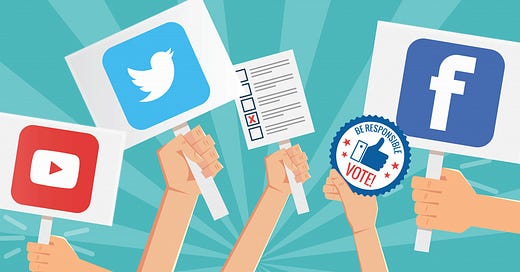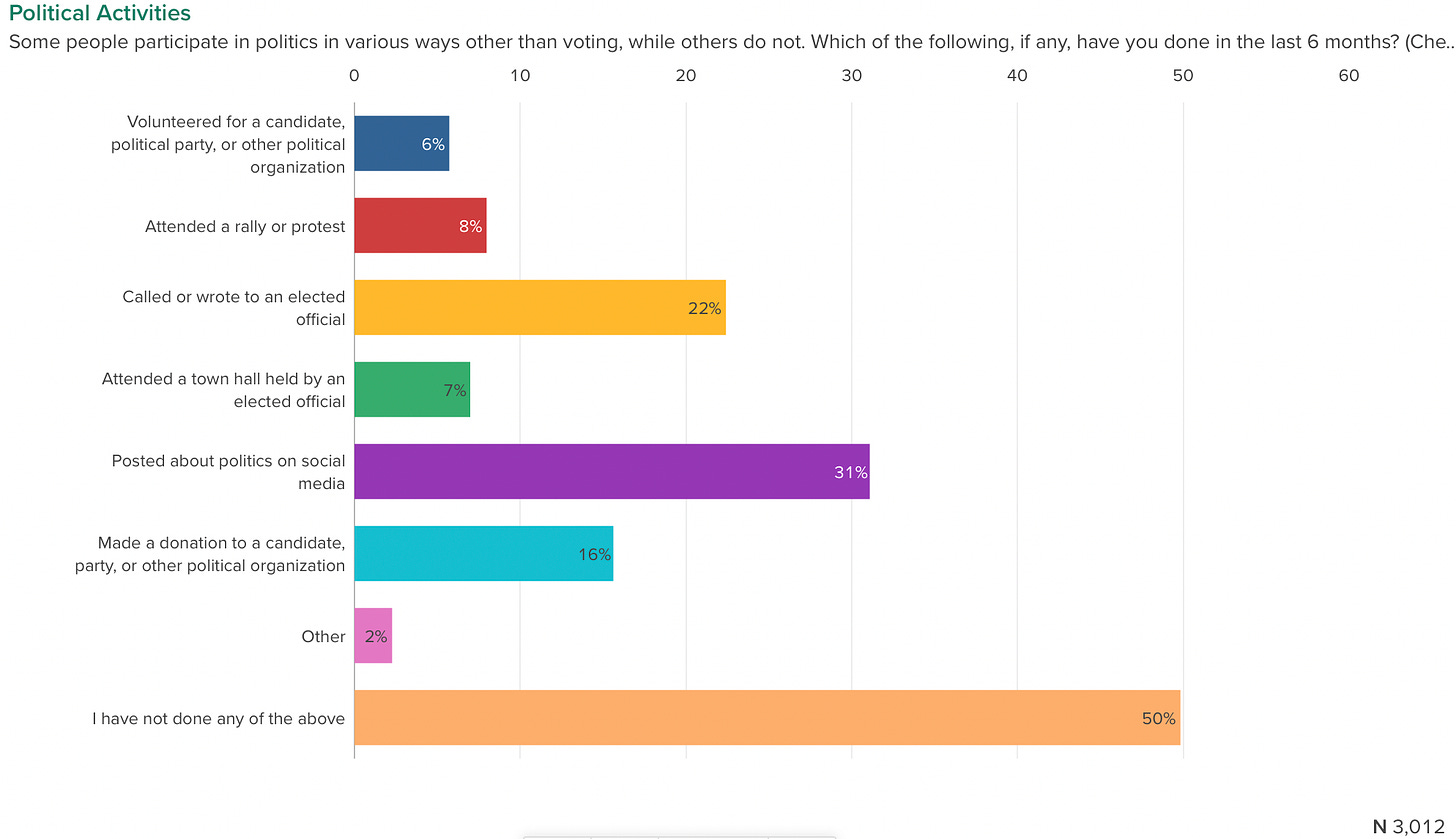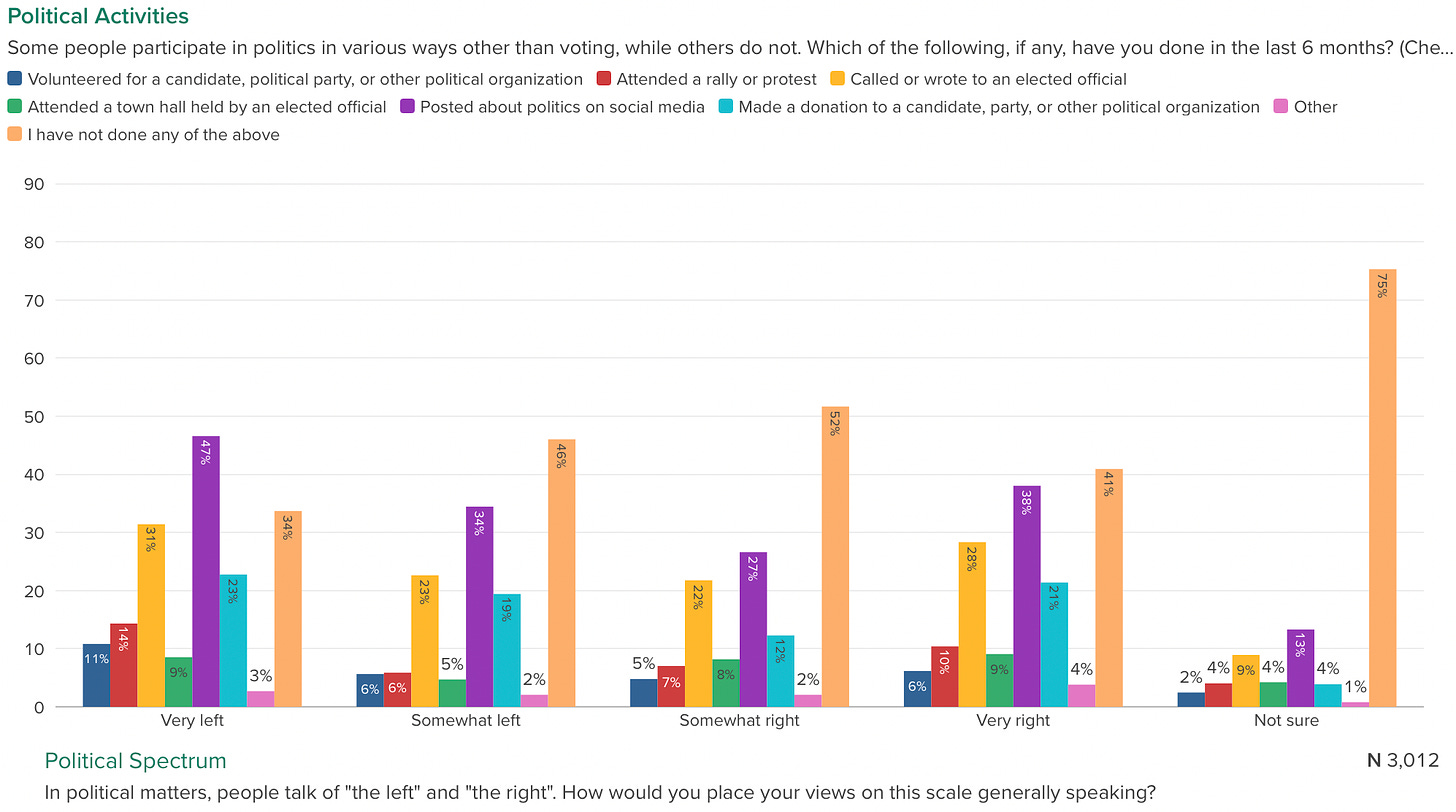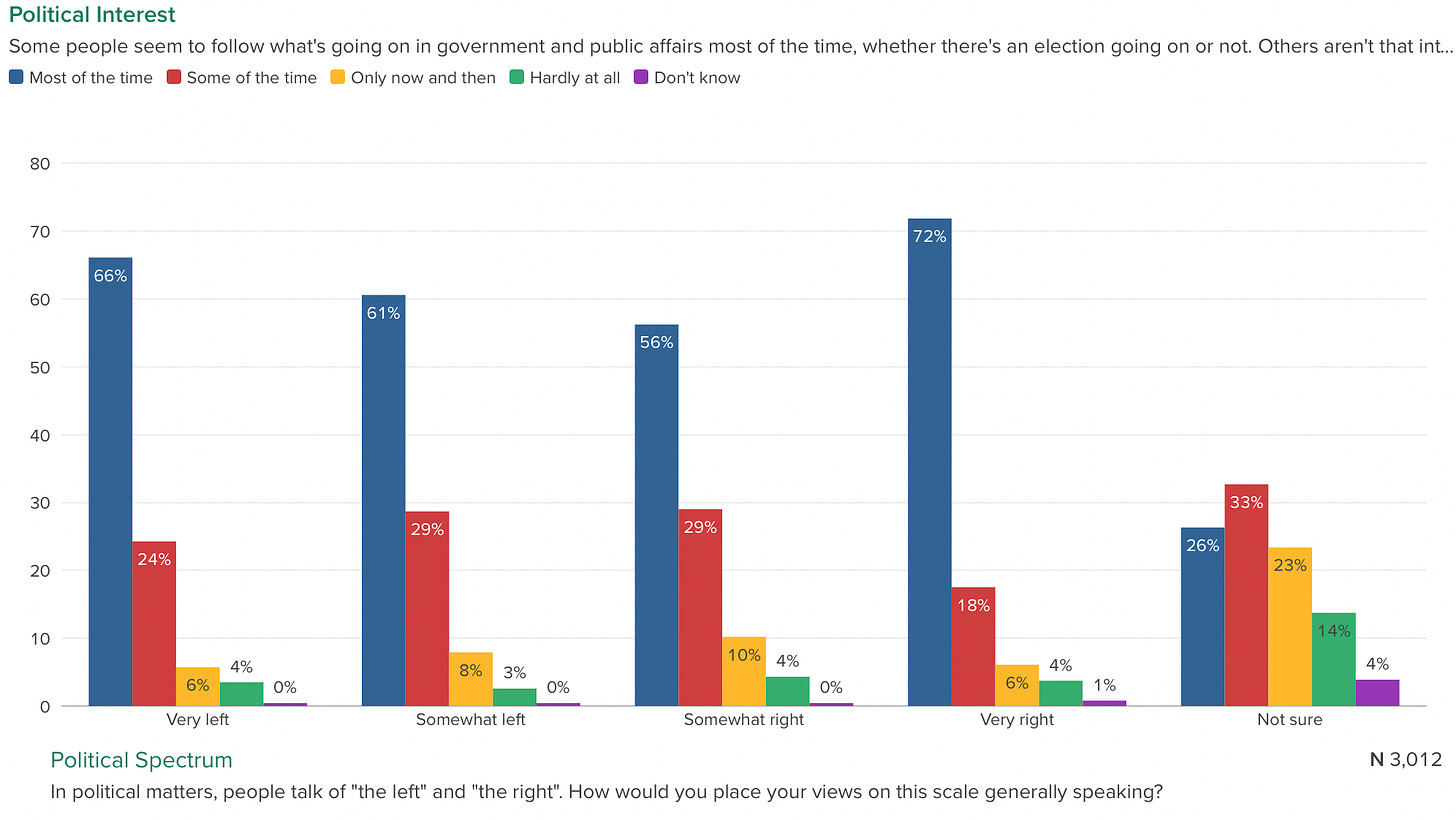Politics Isn’t Life
Half of American voters never engage in any political activities beyond casting their vote.
To readers of political newsletters, participation in elections and the rough-and-tumble of partisan politics probably seems like ordinary behavior. But to large numbers of Americans, politics is little more than casting a vote.
Looking at the new TLP/YouGov 2024 presidential tracker, including interviews with 3000 registered voters, we find that half of all American voters say they haven’t done anything political in the last 6 months.
Around three in 10 voters say they have posted about politics on social media—the highest ranked activity of the bunch. Roughly one fifth of voters say they have contacted an elected official and slightly less than one fifth have donated to a candidate or party. Activities that require some physical presence in politics—like volunteering for a party or candidate, attending a rally or protest, or attending a town hall—are undertaken by very small percentages of Americans.
The beauty of American democracy is that the country works for everyone regardless of whether they participate in politics or not. Politics can be a complete bore and there are numerous other activities that people would rather spend their time doing. Not participating in politics is completely normal and understandable behavior.
However, when we look at political participation by ideology, it becomes clear that the most fervent voices in America are also the most active which may present problems for the country in terms of skewing issues and policy debates towards the views of more extreme perspectives.
For example, among those voters who classify themselves as “very left” (15 percent of registered voters), nearly half have posted about politics on social media, three in 10 have contacted an elected official, and around one quarter have made a political donation. Patterns are similar at slightly lower levels among those who classify themselves as “very right” ideologically (18 percent of registered voters).
In contrast, around half of those who are merely “somewhat left” or “somewhat right” (50 percent of the electorate combined) don’t engage in any political activities. And a full three quarters of non-ideological voters—those who are not sure where they land on the ideological spectrum (17 percent of registered voters)—haven’t engaged in any political activity at all in recent months.
In terms of interest in political developments, people with more defined ideologies also exhibit far more engagement than those without these ideological commitments. For example, as seen in the chart below, two-thirds of those who are “very left” and nearly three quarters of those who are “very right” say they follow what’s going on in government and public affairs most of the time. In contrast, only one quarter of those without a firm ideological commitment pay attention to political developments most of the time.
Does it matter if a small subsection of Americans take politics much more seriously than others?
Perhaps not, if the views of less engaged citizens are adequately represented in political debates and policy considerations. But if the views of less ideologically committed and politically engaged Americans are not adequately represented in government—or are drowned out by extreme opinions—then government has a serious democratic input challenge.
Given earlier findings from this poll that show large numbers of Americans believing that both parties have become too ideologically extreme on economic and cultural issues, it’s safe to say that the inputs of more moderate and less ideological Americans are not properly represented in modern politics.
You can’t make people participate in politics or pay more attention to public matters if they don’t want to. But the government and the two political parties can take extra steps to better understand the concerns and perspectives of regular Americans and incorporate these views into party discussions and agenda setting.
The government and political parties should listen more to those who can’t or don’t want to speak up—and listen less to those who shout their opinions all the time and send money for partisan combat.








